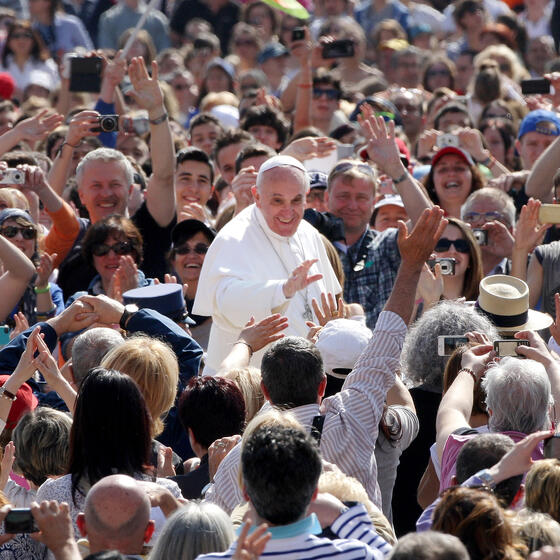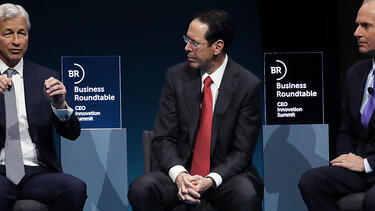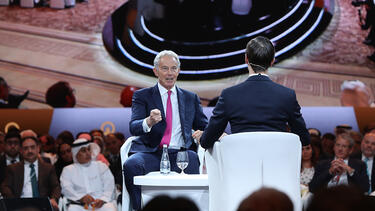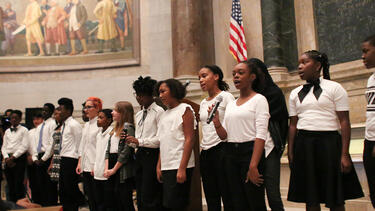Leadership
The Lessons from Pope Francis for the Class of 2025
Yale SOM leadership expert Jeffrey Sonnenfeld reflects on what the next generation of leaders can learn from the late pope.

Three Questions: Prof. Jeffrey Sonnenfeld on Looking Beyond Shareholder Value
This week, the Business Roundtable declared a commitment to the interests of customers, employees, and local communities—not just shareholders. Yale SOM's Jeffrey Sonnenfeld says the change in position reflects an understanding among many business leaders that doing good is not antithetical to doing well.

Why Leaders Need to Care about Diversity
Eileen Murray, the co-CEO of the world’s largest hedge fund, Bridgewater Associates, says that top leaders at financial firms need to do more to foster diversity—or risk falling behind in the race to innovate.

WeWork: What, We Worry?
Jeffrey Sonnenfeld writes that WeWork founder Adam Neumann’s sale of $700 million of his ownership indicates a lack of faith in his own company as it heads toward an IPO.

The Man Is the Brand
The luxury shoe brand Stuart Weitzman is a now a corporate sibling to Coach, but it retains the DNA of its founder. Yale Insights talked to Weitzman about the connection a brand can make with customers and the moment he turned the spotlight on shoes.

Three Questions: Prof. Jeffrey Sonnenfeld on Lee Iacocca’s Legacy
What drove Lee Iacocca? Yale’s Jeffrey Sonnenfeld explains the man behind both the iconic vehicles and the PR machine.

The Bahrain Conference: What the Experts and the Media Missed
Yale SOM's Jeffrey Sonnenfeld says the positive nature of discussion at the recent economic summit in Bahrain was a welcome sign of new optimism in the region.

Can Civics Education Repair a Failing Democracy?
Louise Dubé ’88 of the nonprofit iCivics argues that engagement in civic life requires skills that many schools no longer teach.

With FCA-Renault-Nissan Drama, Who Needs Game of Thrones?
The proposed merger between Renault and Fiat Chrysler would create the world's third-largest automaker and could reshape the future of electric and self-driving cars. But Yale SOM's Jeffrey Sonnenfeld writes that the merger is a fundamentally human drama.

For CEOs, Integrity Is the Best Policy
A new study co-authored by Yale SOM’s Thomas Steffen analyzed tens of thousands of shareholder letters to reveal whether executives’ actions typically live up to their promises. It found that firms whose CEOs scored well on this measure of integrity tended to perform better, while facing lower audit fees.

James Robertson ’99 on the Fallout from Doing the Right Thing
James Robertson ’99, former CEO of the India HIV/AIDS Alliance, on facing the consequences of a tough ethical call—and the unexpected upside that can result.
